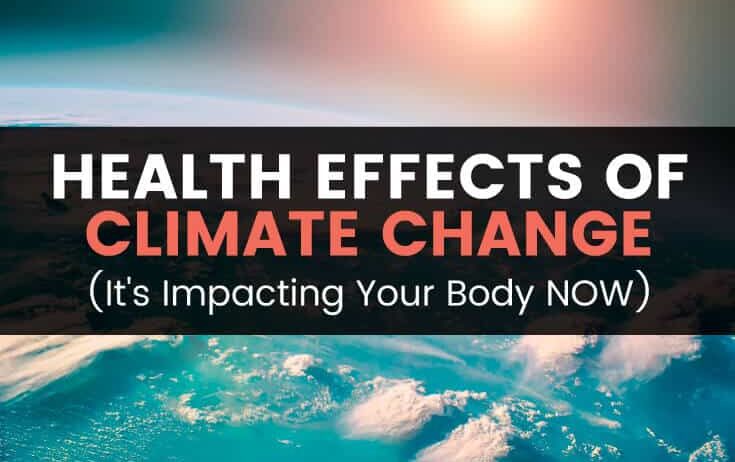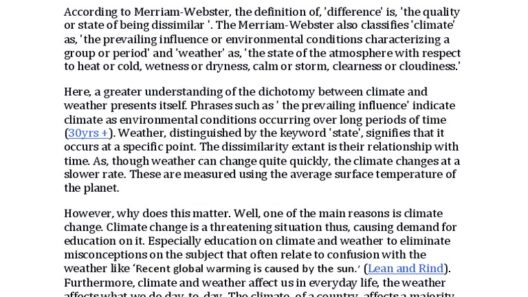Climate change is not merely an ominous specter looming over future generations; it is an ongoing crisis that is already impacting human health in multifaceted ways. As temperatures rise and weather patterns shift, the repercussions for public health become increasingly pronounced. Understanding these impacts is essential for mitigating risks and fostering resilience in our communities.
Human health is intricately linked to the environment, and the disruptions caused by climate change create a range of health challenges. From exacerbated respiratory conditions to heightened vulnerability to infectious diseases, the effects are as varied as they are severe. Below, we explore the myriad ways climate change is reshaping health outcomes.
One of the most immediate consequences of climate change is the increase in extreme weather events. Such events include hurricanes, floods, and droughts, which lead to direct and indirect health impacts.
Extreme Weather Events: A Catalyst for Health Crises
The frequency of heatwaves is on the rise, posing a significant threat to vulnerable populations. Elderly individuals, children, and those with pre-existing health conditions are particularly at risk for heat-related illnesses, including heat exhaustion and heat stroke. Prolonged exposure to excessive heat can exacerbate chronic diseases, leading to complications and increased mortality rates.
Severe weather also results in injuries and fatalities directly. The structural damage and disruption caused by storms inevitably lead to increased hospital visits, rehabilitation needs, and long-term mental health challenges. For instance, individuals affected by these disasters often face post-traumatic stress disorder (PTSD) as they confront the ramifications on their lives, homes, and communities.
Moreover, flooding can have profound implications for public health. The inundation of water can contaminate drinking supplies, leading to gastrointestinal diseases that flourish in compromised environments. Additionally, floodwaters can act as vectors for chemical exposure from agricultural runoff and industrial pollutants, worsening pre-existing health conditions.
In the wake of disasters, mental health becomes a significant focus. Not only does the physical devastation take a toll, but the emotional aftermath can create lasting impacts that challenge community resilience. Recovery from such traumatic events necessitates a holistic approach, integrating physical, mental, and social health strategies.
Shifting Patterns of Disease: The Rise of Vector-Borne Illnesses
Climate change alters the habitats of many insects and organisms, leading to shifting patterns in the transmission of infectious diseases. Warmer temperatures and changing rainfall patterns expand the geographic range of vectors, such as mosquitoes and ticks, which carry diseases like malaria, dengue fever, and Lyme disease.
As these vectors proliferate, populations in previously unaffected regions may become susceptible to these diseases. For example, diseases once endemic to tropical regions are now appearing in temperate climates, threatening health systems that are ill-prepared to cope with such changes. This shift necessitates robust surveillance systems to monitor vector populations and emerging infectious diseases, enabling timely public health interventions.
Additionally, climate change can influence human behaviors, such as migration patterns, which contribute to the spread of diseases. As people flee from climate-related disasters, they often move into densely populated areas with limited healthcare infrastructure, exacerbating transmission rates and complicating control efforts.
Air Quality and Respiratory Health: The Unseen Dangers
The effects of climate change on air quality cannot be overstated. Increasing temperatures contribute to the formation and intensity of ground-level ozone, a harmful air pollutant that exacerbates respiratory conditions such as asthma and chronic obstructive pulmonary disease (COPD).
Particulate matter, also a byproduct of increased heat and wildfires, poses another significant risk. Fine particulate matter can penetrate deep into the lungs, causing cardiovascular issues, respiratory infections, and premature death. Populations living near industrial sites or areas prone to wildfires are especially vulnerable to these air quality challenges, necessitating interventions that address both climate and health disparities.
Moreover, climate change is likely to exacerbate pollen production from plants, extending allergy seasons and increasing the prevalence of allergic reactions. This proliferation can lead to significant declines in overall public health, resulting in increased healthcare costs and lost productivity as individuals struggle with allergy-related symptoms.
Strategies for Mitigation and Adaptation
Addressing the health impacts of climate change requires a multifaceted approach that combines mitigation strategies and public health preparedness. Governments, healthcare systems, and communities must collaborate to create resilient infrastructures and promote awareness about the health risks inherent in a changing climate.
Preparedness entails creating robust emergency response plans that prioritize vulnerable populations and their specific needs. Increasing access to mental health services, particularly post-disaster, is paramount in addressing the psychological toll of climate-related events. Additionally, health education campaigns can empower communities with knowledge about prevention strategies, such as vaccination to prevent vector-borne diseases and awareness of air quality indices.
Institutional collaboration is vital in integrating climate-related health impacts into broader public health strategies. This includes investing in research to further understand the complex interactions between climate change and health, advocating for policies that reduce greenhouse gas emissions, and promoting sustainable practices that not only curb climate change but also bolster public health outcomes.
Climate change represents one of the most significant threats to global health of this generation. Without decisive action, the consequences for human health will continue to escalate. Through understanding, preparedness, and strategic action, it is possible to mitigate the impacts of this crisis, fostering healthier communities in an increasingly uncertain world.






